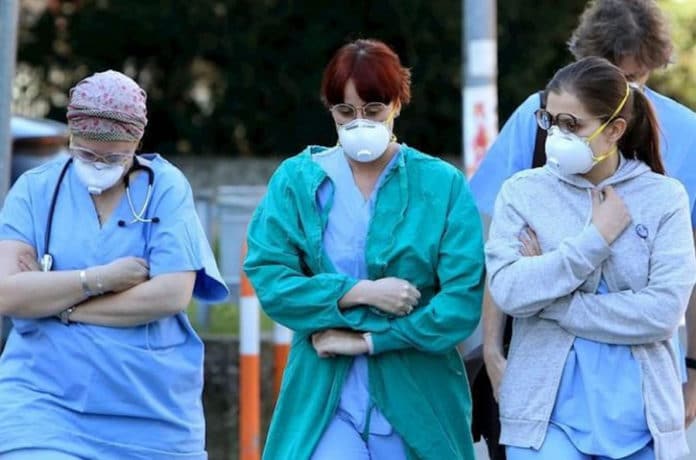On Friday, Dr Marciano Gómez, the Minister of Health in the Valencian Community, announced the re-introduction of facemasks in hospitals and health centres, with immediate effect, due to the recent increase in cases of flu and respiratory infections. The action is introduced alongside those in the neighbouring Province of Murcia.
The measure was thought necessary due to the ongoing increase in the global rate of acute respiratory infections in Primary Care, currently 908.6 cases per 100,000 inhabitants, an increase from 806 over the previous week, and in general, at all levels of care of 1,501 cases per 100,000 inhabitants, well above the Spanish average, which is 908.
The Ministry sent to the health departments of all three provinces an instruction that establishes the mandatory use of masks in health and social health centres as a preventive measure in the face of the resurgence of the respiratory virus infection.
The instruction requires that the mandatory use of masks in health and social health centres is necessary in the following situations:
Symptomatic people when in shared spaces
Professionals who care for symptomatic cases
People who work in Intensive Care Units and Units with Vulnerable Patients
In hospital emergencies or primary care departments
In places where patients and families are concentrated (Primary Care waiting rooms, hospital consultation areas).

The move had been widely anticipated following Thursday’s announcement by the Minister that health centres are to administer doses of flu and covid-19 vaccines without the need for appointments, with the purpose of promoting the immunisation of the public in the face of the rebound in respiratory infections that is typical of this winter period putting many local hospitals under increased pressure.
In the Emergency Department of the Alicante Hospital, health workers say that they are overloaded with an average of 500 patients every 24 hours, where the maximum is usually 350. With beds in corridors and hallways, patients are currently experiencing waits of between six and ten hours
The Vinalopó Hospital has opened a ward due to the resurgence of respiratory infections, where there are currently just five free beds, and the Vega Baja hospital is admitting patients without infectious pathologies to the Maternity Unit, so as to free up space in other areas of the hospital. In general, the Emergency Departments of all our local hospitals are currently saturated.
Admissions for serious respiratory illnesses have almost doubled in seven days and are also twice the state average. The incidence of flu has multiplied by four between Christmas and New Year’s Eve, as a result of the increase in infections following the family and social gatherings that is typical of these holidays periods.
The worsening of the situation has also led the Ministry of Health to allow hospitals to reschedule operations, depending on the pressures they are under: thus, while urgent and vital operations will be carried out, non-urgent surgeries may be postponed.
In the event that the use of private resources is needed, a public-private collaboration framework will also be sought. That is, patients will be diverted to private clinics and hospitals, where necessary.
Also from Monday, all Primary Care centres of the Valencian Community will administer flu and COVID-19 vaccines without an appointment, with the aim of facilitating the immunisation of as many people as possible in the face of the current rebound in respiratory viruses.
All children will also be able to be vaccinated starting on Monday, in Primary Care centres with a paediatric service (all health centres, except clinics), which the Minister has urged families to seriously consider.
Dr Marciano Gómez said that, so far, medical teams have administered 1,035,089 doses of vaccine against the flu, 769,425 doses against the COVID-19 virus and 25,459 against the respiratory syncytial virus (RSV).
He added that he will meet next week with the managers of the health departments from across the Valencian Community to analyse the implementation and possible adjustment of these measures.





